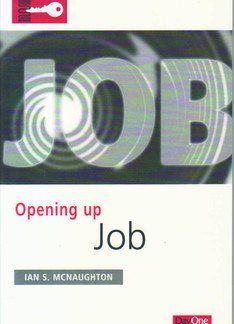This volume aims to provide a working introduction to the book of Job. Much thought has gone into this publication and its layout. The book of Job is of perennial importance, dealing as it does with difficult questions faced by many.
Opening up Job first places Job in his historical setting. To avoid getting bogged down with the counsels of the three friends, the book focuses on Job, as the chapter titles show: Job’s story, Job’s enemy, Job’s lament, Job’s grief, etc.
The contribution of the friends is summarised, while Job’s responses are explored in more depth. Good points are made, for example, children knowing the spiritual priorities of their parents, the truth of salvation in Christ, and the destructive working of bitterness.
Useful quotations are given (usually from Spurgeon) and each chapter ends with further study points and questions. From the start, there is a clear commitment to the authority of Scripture and the six literal days of creation. The range of references to Adam and creation in Job is highlighted, as is Job’s range of names for God and for sin. This connects Job with the rest of the Bible.
The book is easy to read, although I found an ‘over-Christianising’ of Job frustrating and detracting from the greater usefulness of the book.
The biblical reasons behind suffering are covered well in chapter 4. This may well be the chapter for which people would buy this book. The book ends with a helpful comparison of Job’s priestly mediation for his friends with Christ’s own priestly work of sacrifice and intercession.
Timothy Burden
Eastbourne




